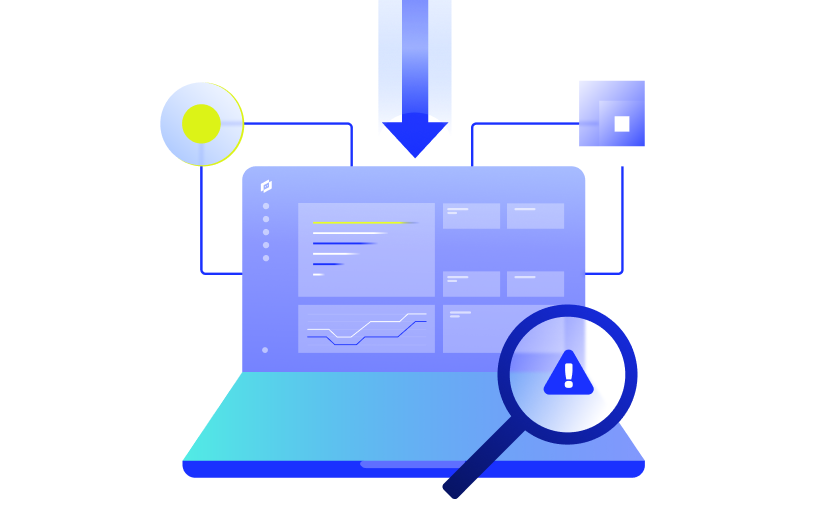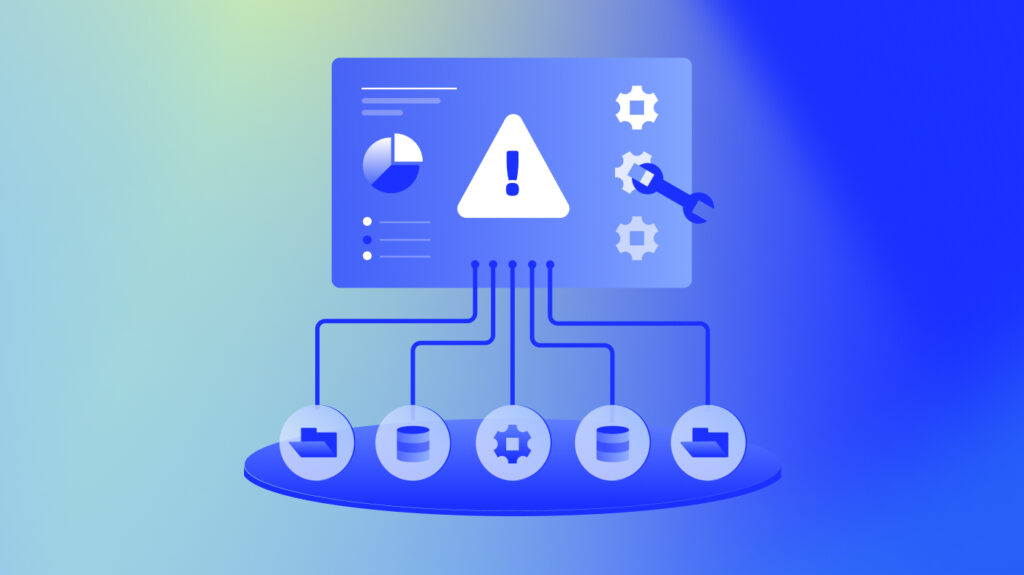For large-scale IT organizations, SNMP traps and log alerts are critical, but they can also be a hidden source of technical debt. Over time, alerting systems balloon with noise like redundant conditions, alerts from decommissioned tools, and logic that no longer maps to today’s hybrid infrastructure.
One LogicMonitor customer, a global enterprise managing over 5,000 devices, found themselves here: more than 1,600 SNMP trap and log alert conditions in their production environment, many of which had long outlived their purpose.
Instead of dragging that noise into a new platform, they used the migration to LogicMonitor Envision as a moment to reset, simplify, and modernize.
TL;DR




The Problem: Decades of Alert Bloat
This enterprise relied on an SNMP trap and log monitoring setup, which quietly accumulated a massive number of alert conditions over time. The signs of trouble were familiar:
- Rules tied to legacy systems that had been sunset years ago
- Conditions that had never once triggered due to misconfigured thresholds
- Alerts that lacked context or actionable insights
- A growing burden on engineers to maintain and sort through the noise
Each of these 1,600+ alert rules would require manual onboarding into LM Envision—taking 1 to 2 minutes per rule. That’s up to 53 hours of migration time to replicate outdated logic that no longer served their business.
They made a strategic decision: optimize first, then migrate.
 Want deeper visibility into logs without drowning in noise?
Want deeper visibility into logs without drowning in noise?
The Strategy: Clean House Before You Move
We encourage teams to use migration as a clean-slate opportunity. So, guided by our alerting cleanup best practices, the IT team began a rule-by-rule audit using four key criteria:
- How often does this rule trigger?
- Is it tied to a decommissioned tool or system?
- Is the condition still relevant to today’s environment?
- Can it be merged, simplified, or deprecated?
Armed with these questions, they built a comprehensive inventory of all trap and log alert rules. This effort uncovered dozens of legacy configurations, including traps linked to tools that had been retired and thresholds set for infrastructure that no longer existed.
They also identified opportunities to consolidate similar alerting rules and fine-tune log thresholds based on real-time system behavior, ensuring that only the most relevant conditions were carried forward.
The Technology: LogicMonitor Logs + Traps for Real-Time Correlation
By using LM Logs for syslog and its capability to convert SNMP traps into log data, the IT team gained unified visibility into system behavior across the environment. This enabled them to:
- Correlate traps as logs along with traditional log data and infrastructure metrics/alerts for faster root cause identification
- Eliminate low-value alerts and redundant conditions
- Fine-tune alert logic to reflect current infrastructure and system behavior
- Use AI/ML features like log anomaly detection, log patterns, and log analysis to troubleshoot alerts faster and reduce MTTR
Using LM Logs’ query language, log anomaly detection, and role-based access controls, they could refine and govern alert configurations in ways their previous platform didn’t support.
The outcome was a complete uplift of their monitoring posture, enabling true hybrid observability powered by AI.
The Results: Fewer Alerts, Faster Time to Value
After their cleanup and migration effort, the organization achieved:
- 80% reduction in SNMP trap and log alerting conditions
- Elimination of alerts tied to obsolete tools and retired infrastructure
- 26 hours saved in onboarding time by skipping unnecessary rule configuration
- Enhanced visibility with LM Logs for better signal detection and troubleshooting
- Improved downstream integrations, including ServiceNow, thanks to a cleaner, more focused alert set
Just as importantly, their alerting setup now aligns with current infrastructure and scales cleanly as their environment evolves.
 Curious how Edwin AI helps automate alert triage and
Curious how Edwin AI helps automate alert triage andreduce time to resolution?
Every Migration Is a Strategic Moment
Too often, IT teams approach migration with a “lift and shift” mindset, missing the opportunity to avoid alert fatigue by eliminating legacy rules and surfacing only actionable insights.
This success story shows what’s possible when migration becomes a moment of optimization, not duplication.
With LogicMonitor’s integrated approach to traps, logs, metrics, and automation, you don’t just reduce alert noise. You enable your team to act faster, reduce MTTR, and prevent issues before they escalate.
Seasoned IT professional with over 15 years of experience helping organizations proactively improve their infrastructure and prevent issues before they arise. I specialize in building smart, scalable solutions that streamline operations and deliver real value. Passionate about automation, optimization, and making complex systems work seamlessly behind the scenes.
Subscribe to our blog
Get articles like this delivered straight to your inbox








